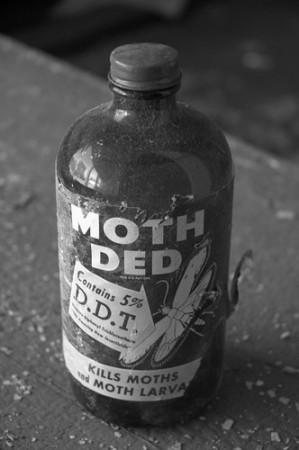
Continuous exposure to commonly used insecticide, dichlorodiphenyltrichloroethane, or DDT, may contribute to the development of Alzheimer's disease, latest research shows.
In a study, reported in the online edition JAMA Neurology, people with the brain disorder had alarming levels of DDE (a long staying metabolite of the pesticide DDT) in their blood compared to people without the condition.
"This is one of the first studies identifying a strong environmental risk factor for Alzheimer's disease," co-author Dr Allan Levey, director of Emory's Alzheimer's Disease Research Center and chair of neurology at Emory University School of Medicine, said in a news release. "The magnitude of the effect is strikingly large -- it is comparable in size to the most common genetic risk factor for late-onset Alzheimer's."
For the study, a team of American researchers looked at 86 Alzheimer's patients and compared them to 79 healthy people. Researchers collected blood samples from the participants and measured and recorded DDE levels. Results showed a clear link between continuous exposure to the pesticide and the brain disease. DDE levels in Alzheimer's patients were four times higher than healthy people.
To re-confirm their findings, researchers exposed cultured neural cells to high levels of DDT and DDE. The occurrence contributed widely to the excess production of proteins that normally appear before the onset of Alzheimer's disease, mainly before the accumulation of beta-amyloid, the toxic proteins responsible for Alzheimer's disease.
Researchers said that DDE can stay longer in the blood and get accumulated in the tissues, increasing the risk of Alzheimer's disease.
The findings bring concern as at present, India is the largest manufacturer of DDT in the world. Though DDT was once a widely used product for crops and insect control, mainly mosquitoes in the world, most of the countries banned the pesticide due to the health risks associated with it. However, In India, the pesticide is still widely in use.











